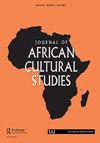Being Muslim at the Intersection of Islam and Popular Cultures in Nigeria
IF 0.9
2区 社会学
Q2 CULTURAL STUDIES
引用次数: 3
Abstract
ABSTRACT “Being Muslim” is a complex identity formation process that involves negotiating what is considered “Islamic” or “non-Islamic” selves in various localized and globalized contexts. At the crossroad of Islam and popular culture, divergent Muslim cultural producers influence how contemporary Muslim cultures and identities are produced and negotiated in both normative and disruptive ways. Using “celebrity” as a cultural formation with a social function, this article examines shifting dynamics, contradictions, tensions, and negotiation processes within the Muslim cultural production fields (both physical and virtual) that involve “dominant” popular Islamic preachers in northern Nigeria and “emerging” Muslim superstars in the Kannywood entertainment industry. By examining how some popular Islamic preachers (who are opposed to Kannywood celebrity culture) have transformed into religious celebrities themselves, and how Kannywood superstars crafted their identities as Muslim celebrities, the article shows that an assertion of one’s Muslim identity in a cultural setting dominated by Islamist movements does not necessarily indicate an endorsement of those movements’ reform agendas. Instead, it can challenge those movements’ interpretations of Islam through alternative ways of being Muslim in subtle ways – a dynamic that reveals processes at work in the reconstruction of “being Muslim” in the contemporary world.在尼日利亚伊斯兰教与流行文化的交汇点上做穆斯林
摘要“身为穆斯林”是一个复杂的身份形成过程,涉及在各种本地化和全球化的背景下谈判什么是“伊斯兰”或“非伊斯兰”的自我。在伊斯兰教和流行文化的十字路口,不同的穆斯林文化生产者以规范和破坏的方式影响当代穆斯林文化和身份的产生和谈判。本文将“名人”作为一种具有社会功能的文化形态,考察了穆斯林文化生产领域(实体和虚拟)内不断变化的动态、矛盾、紧张局势和谈判过程,这些领域涉及尼日利亚北部“占主导地位”的流行伊斯兰传教士和坎尼伍德娱乐业“新兴”的穆斯林巨星。通过研究一些受欢迎的伊斯兰传教士(他们反对坎尼伍德名人文化)是如何转变为宗教名人的,以及坎尼伍德超级明星是如何塑造他们作为穆斯林名人的身份的,这篇文章表明,在伊斯兰运动主导的文化环境中,对穆斯林身份的断言并不一定意味着对这些运动的改革议程的认可。相反,它可以通过以微妙的方式成为穆斯林的替代方式来挑战这些运动对伊斯兰教的解释——这一动态揭示了当代世界重建“穆斯林”的过程。
本文章由计算机程序翻译,如有差异,请以英文原文为准。
求助全文
约1分钟内获得全文
求助全文
来源期刊

Journal of African Cultural Studies
Multiple-
CiteScore
1.70
自引率
10.00%
发文量
13
期刊介绍:
The Journal of African Cultural Studies publishes leading scholarship on African culture from inside and outside Africa, with a special commitment to Africa-based authors and to African languages. Our editorial policy encourages an interdisciplinary approach, involving humanities, including environmental humanities. The journal focuses on dimensions of African culture, performance arts, visual arts, music, cinema, the role of the media, the relationship between culture and power, as well as issues within such fields as popular culture in Africa, sociolinguistic topics of cultural interest, and culture and gender. We welcome in particular articles that show evidence of understanding life on the ground, and that demonstrate local knowledge and linguistic competence. We do not publish articles that offer mostly textual analyses of cultural products like novels and films, nor articles that are mostly historical or those based primarily on secondary (such as digital and library) sources. The journal has evolved from the journal African Languages and Cultures, founded in 1988 in the Department of the Languages and Cultures of Africa at the School of Oriental and African Studies, London. From 2019, it is published in association with the International African Institute, London. Journal of African Cultural Studies publishes original research articles. The journal also publishes an occasional Contemporary Conversations section, in which authors respond to current issues. The section has included reviews, interviews and invited response or position papers. We welcome proposals for future Contemporary Conversations themes.
 求助内容:
求助内容: 应助结果提醒方式:
应助结果提醒方式:


